On 17 April, Folketinget, the Danish parliament held a so-called “Open Hearing” to discuss healthcare for people suffering the symptoms of menopause. Although almost all women experience one or more of these symptoms to som degree, women suffering from menopause symptoms have been stigmatized. However, it is imperative to regard menopause as a natural phase of life and not a disease. Many other countries have already established menopause healthcare policies and initiatives, notably in the UK, Sweden, and the US – all of whom have paid special attention to menopause in the past two years.
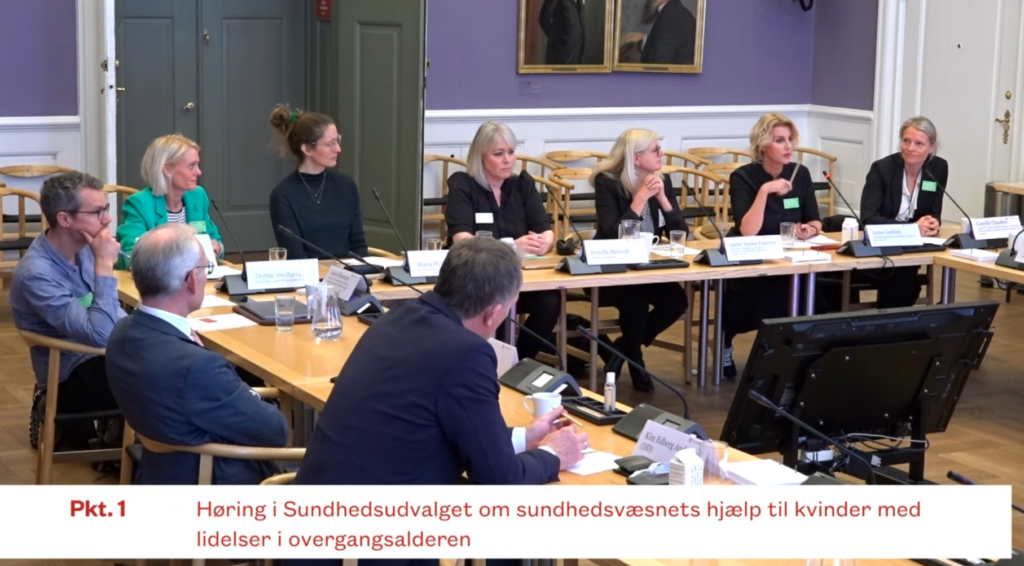
A number of experts were invited to discuss the issue of menopause and how Denmark can better respond to the needs of people experiencing menopause symptoms.
The questions the hearing addressed included:
- Why is women’s menopause a matter of healthcare, research and politics?
- What is menopause, what symptoms are associated with it, and how many people are affected?
- What do we know about the potential and risk of symptom relief?
- How do women experience social, physical, and mental implications of menopause?
- What knowledge, information, and help do women in menopause miss?
- How is new knowledge about menopause implemented in healthcare?
- How is relevant research on menopause ensured?
- Where is the balance between natural processes and treatment-intensive conditions?
- What initiatives can be taken to improve healthcare meetings with women with disorders triggered by menopause?
Lasse Gliemann, Lecturer at Copenhagen University and leader of the research project, “Women in Healthy Menopause”, opened the hearing explaining the basics of menopause. The common symptoms include difficulty sleeping, brain fog, hot flashes and night sweats, anxiety, depression, joint pain, low libido, heart palpitations. He explained how these symptoms are highly interconnected and affect each other, which makes menopause a complex issue. He further highlighted a significant socioeconomic consequence of menopause, namely that it is estimated in Denmark that there is a loss of earnings estimated at 4,043,863,375 DKK per year due to menopause. Gliemann’s “take-home message” was:
“Menopause is extremely complex, under-explained and overlooked. Menopause has significant consequences, from individual to community level, privately and professionally. A significant long-term effort is needed with research, communication and education”.
Other speakers included:
- Dorthe Snejbjerg, Specialist in obstetrics and gynaecology with her own specialist medical practice
- Maria Hybholt, Associate Professor at the University of Copenhagen, with a focus on sociological research into middle-aged women’s everyday life, bodies and self-identity.
- Pernille Melsted, author and and debater
- Anette Tønnes Pedersen, Specialist in obstetrics and gynaecology, Senior Physician at Rigshospitalet, Department of women’s diseases, and Clinical Associate Professor
- Sanne Gottlieb, nursing student, Journalist, and Founder of Menoconsult
- Camille Claudius, Medical Doctor HD, Senior Medical Director, and Head of Medical Affairs Nordics at Astellas Pharma
- Lotte Hvas, Specialist in general medicine, MD.
The conclusion of the 2.5-hour-long hearing was clear: Firstly, many people are suffering from the lack of information, knowledge and expertise about menopause. Secondly, the society lacks resources and policies to help people through this transition. Both points impact society in a very tangible, financial way.
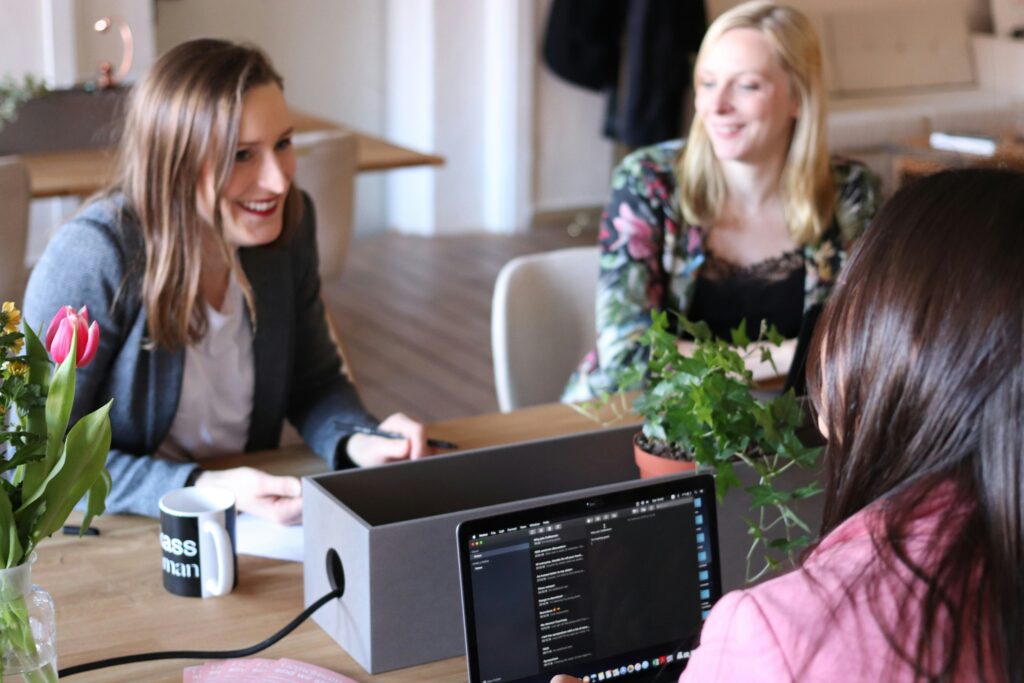
See also our article on research on menopause in the workplace.
TechTruster has highlighted 5 takeaways we heard throughout this hearing about menopause in Denmark
- Dorthe Snejbjerg, Specialist in obstetrics and gynaecology, created a ‘wish list’ which reflects the general feeling of the entire hearing:
- Research into new treatment measures and data on the extent of symptoms
- That GPs refer women with symptoms to a gynecologist to a greater extent
- That gynaecologists get our framework grant set up so that more women can get help
- That gynaecologists can receive a fee for investigation, treatment and follow-up concerning menopause (which Snejbjerg explains that doctors currently do not receive in Denmark)
- That treatment becomes subsidized for the woman
- We should not be so afraid of hormone therapy
- De-taboo, and it’s not something we just have to endure
- Maria Hybholt, Associate Professor at the University of Copenhagen highlighted identity concerns and doubts during this transitional phase of life. She further highlighted “the shit sandwich”; When a woman is both taking care of her own children and must also care for her ageing parents. Besides the care tasks, the sandwich consists of managing her career and a home with her partner, all during the menopausal transition.
- Anette Tønnes Pedersen, Specialist in obstetrics and gynaecology and Senior Physician at Rigshospitalet, highlighted that guidance about menopause must be nuanced, individual, and evidence-based “so that the individual woman has the best conditions to make the right choices for herself”.
- During the discussion, Hybholt highlighted that there is currently a wave of interest in menopause but that to facilitate impactful change, there must also be action from society. “Now take this current wave and get something going, so it’s not just a wave of women and researchers who really want to make a difference, but actually a societal responsibility” (På dansk: “Tag nu den her bølge, der er; få nu gang i noget, så det ikke kun er en bølge af kvinder og forskere, der rigtig gerne vil gøre en forskel men det faktisk blev et bredt samfundsansvar”)
- Sanne Gottlieb, Founder of Menoconsult and author of Menopause Mamas, highlighted her own journey as a nursing student. She is five weeks away from graduating and hasn’t yet heard anything about menopause. Gottlieb consequently emphasized the need for knowledge not only for medical professionals, but also for society, and people experiencing menopause. Finally, Gottlieb suggested adopting some of the activities which take place in other countries.”Menopause cafes, menopause clinics, and standards for workplace practices would be a good start”.
The hearing also discussed the industry’s role in clinical menopause research with a presentation by Dr. Camille Claudius, Medical Director at Astellas Pharma, Nordic. Astellas Pharma wrote a letter requesting to have menopause on the political agenda in January, 2024. Astellas Pharma also published a white paper about menopause treatment options, opportunities, and clinical guidelines in Sweden, Denmark, Finland, and Norway.
The need for knowledge, awareness, and open discussion about menopause in society was the main message of this hearing. At TechTruster, we are committed to sharing this knowledge and helping society understand women’s health through the lens of femtech.
Watch the video of the hearing here, and the PDF of the presentations from the hearing, here.

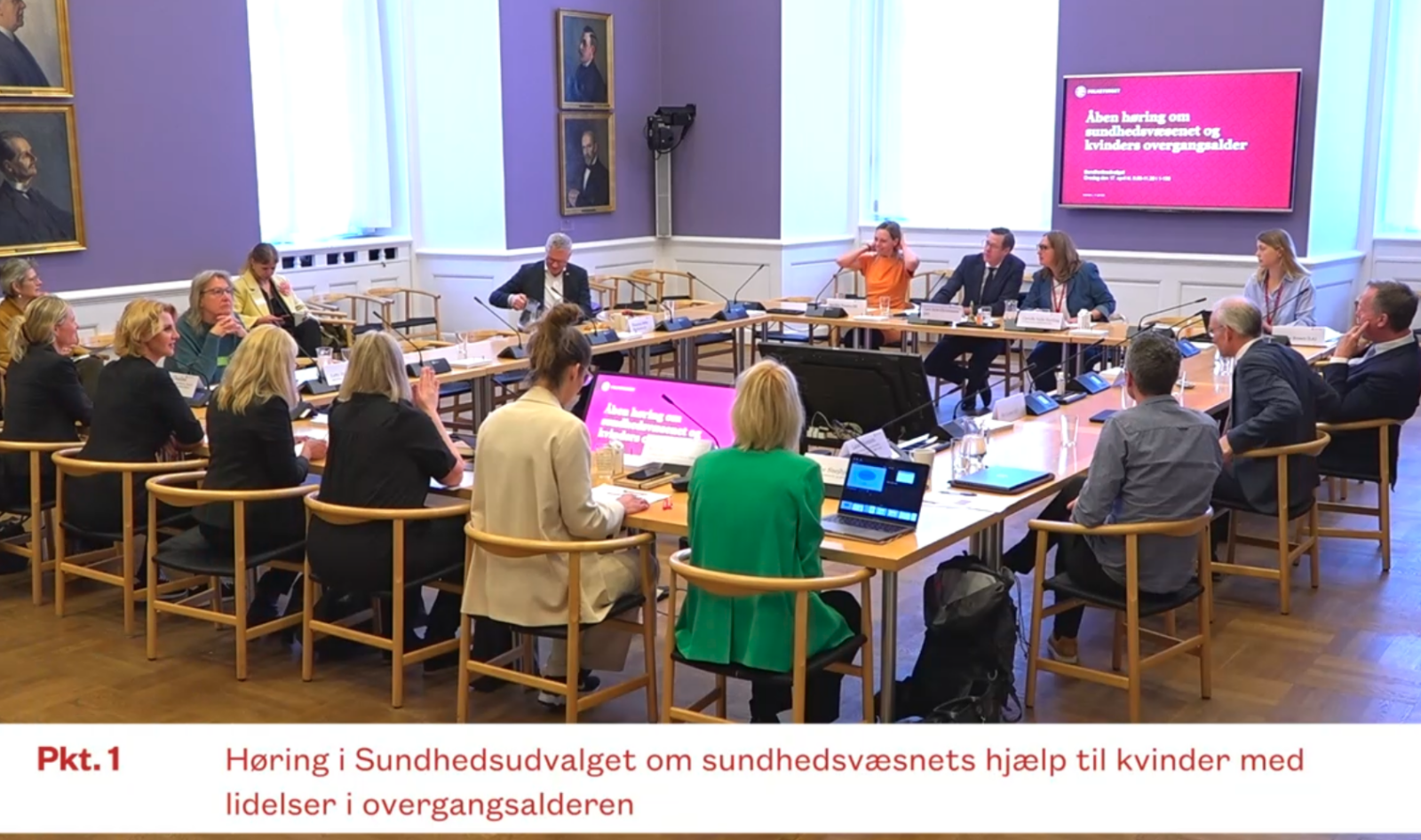
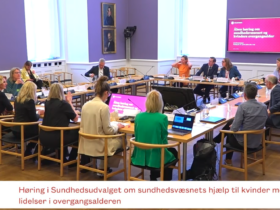
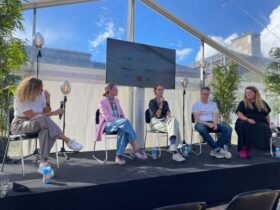
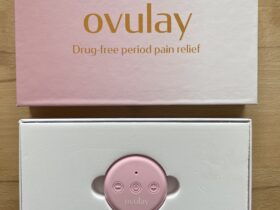

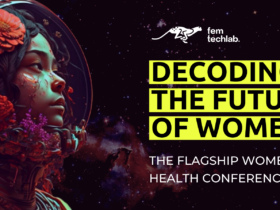



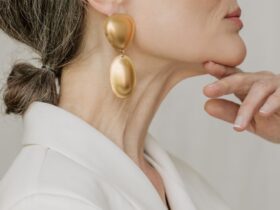

Follow us on social media